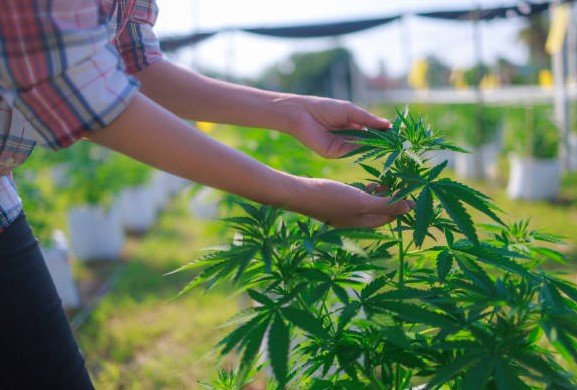Cannabis rules in Georgia remain complicated, but hemp products have quietly built a legal foothold. For thousands of people, smoke shops are filling the gap where medical marijuana access stops.
Hemp Versus Marijuana: Two Plants, Two Purposes
At first glance, hemp and marijuana look the same. Both come from the cannabis family, both produce cannabinoids, and both stir up debate. But Georgia law treats them very differently.
Marijuana in the state is reserved for medical card holders. That’s a small group—patients with one of 18 qualifying conditions. And even then, the product is limited: low-THC oil, capped at 5% concentration.
Hemp, meanwhile, tells another story. By federal law, hemp plants must test below 0.3% THC before processing. That limit is strict, but it opens the door to a variety of products. And unlike medical marijuana, hemp-derived goods don’t require a doctor’s approval. Anyone over 21 can buy them.
It’s not just CBD oils anymore. Shelves in Albany or Atlanta smoke shops carry gummies, sodas, tinctures, and even pre-rolls—all sourced from hemp.
The THC Question: How Much Is Allowed?
For Georgia regulators, THC is the red line. Hemp can’t exceed 0.3% Delta-9 THC in its raw plant form. But once it’s turned into retail items, lawmakers added extra guardrails.
Gummies, drinks, or edibles are capped at 10 milligrams of Delta-9 per serving. Containers themselves face limits, too. That means a bag of gummies won’t be packed with unlimited doses.

Medical cannabis advocates often point out the contrast. A patient’s legal oil can contain up to 5% THC. Hemp consumers, meanwhile, see only fractions of that potency.
Still, for casual buyers, 10 milligrams can be plenty. A single gummy may deliver noticeable effects. For someone unused to cannabis compounds, it’s often stronger than expected.
Farmers and Their Fields: Georgia’s Hemp Push
Georgia farmers were once skeptical of hemp. Many associated it with marijuana raids or strict drug laws. But after the 2018 Farm Bill, growers like John Downs shifted their perspective.
Downs calls CBD a lifeline. He says it pulled him off antidepressants and ADHD medication. For him, hemp fields mean more than a crop—they’re personal medicine.
“It was like flipping a switch,” he explained, recalling how focus came easier once he added CBD flower into his life.
Farms in the state now cultivate hemp alongside peanuts or cotton. The margins aren’t always as strong, but the demand is steady. In towns where agriculture has struggled, hemp keeps fields active.
Stacking Cannabinoids: A Loophole in the Law
Here’s where things get messy. Because hemp THC is capped, brands began experimenting with synthetic cannabinoids. These compounds—Delta-8, Delta-10, THC-P, HHC—aren’t banned under current law.
Shops have leaned into “stacking,” mixing Delta-9 with these other chemicals to boost potency. A legal gummy with 10 milligrams of Delta-9 might also contain several milligrams of HHC. Together, the effect is stronger.
That’s raised concerns. Joe Salome of The Georgia Hemp Company says children shouldn’t be anywhere near these products. “It’s not for everyone,” he warned, pointing to the unknown long-term impacts of synthetics.
To keep things somewhat clear, here’s how some cannabinoids compare in Georgia shops today:
| Compound | Source | Legal Status in GA | Typical Product Form |
|---|---|---|---|
| Delta-9 THC | Natural cannabis | Limited, 10mg per serving | Gummies, sodas, oils |
| CBD | Natural hemp | Legal, widely sold | Oils, tinctures, flower |
| Delta-8 | Synthetic hemp-derived | Legal, unregulated | Vapes, gummies |
| Delta-10 | Synthetic hemp-derived | Legal, unregulated | Gummies, cartridges |
| HHC | Synthetic hemp-derived | Legal, unregulated | Gummies, pre-rolls |
One sentence to pause here: regulation hasn’t caught up.
What Shoppers Actually See in Stores
Walk into a smoke shop in Albany, and you’ll find labels shouting “legal THC” or “Delta-8 infused.” For an outsider, it’s confusing. For regulars, it’s routine.
Products are often lined up by effect—relaxation, focus, energy. But the science doesn’t back all claims. FDA oversight is limited, and few products undergo rigorous testing.
Customers usually fall into three groups:
-
People managing pain or anxiety without a prescription.
-
Recreational users curious about legal highs.
-
Former prescription drug patients seeking alternatives.
Clerks, rather than doctors, end up guiding purchases. Some shops, like Salome’s, do in-depth consultations. Others simply sell whatever’s in stock.
Risks and Unknowns
The hemp boom came fast—too fast for some. Downs, the farmer, says education never kept pace. That left buyers in the dark about what they were consuming.
Synthetic cannabinoids, in particular, worry health experts. Their chemical changes mean long-term impacts aren’t studied. Yet they’re popular, and Georgia has no system to track usage or side effects.
For families, the accessibility is both a relief and a hazard. Adults can legally self-medicate with hemp products. Kids, however, can stumble across them at home, mistaking gummies for candy.
It’s a contradiction Georgia lawmakers may have to address.
